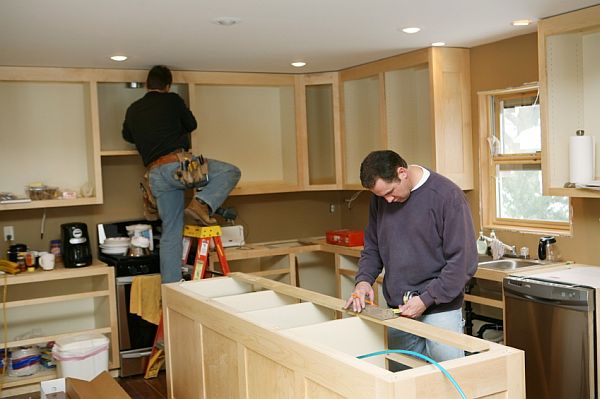There are many reasons someone will buy a home that needs some TLC or work done to it – it allows you to put your own personal stamp on the character of the property; it is more economical or it may be a “flipper” that you can do up and sell for a profit in a short timeframe.
One of the key factors on how you tackle a renovation job is whether you will be living in the property while you renovate or if you have the luxury of living off-site and undertaking the work without having to live around the mess and upheaval.
Dependent on whether you are renovating an investment property, or your home, will determine if you tackle this on a drip-feed basis or do it in one hit.
So what are the benefits of these options? Tackling things on a drip feed basis means that you control your cash flow and it will minimise the disruption to your household if you continue to live in the property. It does however have drawbacks – you can lose continuity and the ultimate job can appear piece-meal. Renovating over a period of time can also take a focus of what you initially budgeted to expend on the property and you can lose sight of the full extent of the financial cost.
No matter how you embark on the renovation – there are some things you should consider and action :
1. Have a plan – a clear plan. What do you want to achieve overall and why? Is it to add value to sell, or is to make it more liveable for your family for the long-haul?
2. Give yourself a budget – and stick to it.
3. Determine your priorities. What do you need to do versus what you want to do?
4. Be clear about the value of your home post the renovation.
5. Do the sums using Professional tradespeople and builders vs doing it yourself.
6. Work out what you can do to reduce the cost of tradespeople and materials.
7. Think about the timing of when the property will be put on the market once you have completed the renovation. Will the renovations you do today still be modern by the time you complete the job? Avoid using trendy colour schemes or lighting fixtures that will date your property.
8. Do you need any permits to undertake the work? Undertaking unapproved construction can make the property harder to sell, reduce your capacity to negotiate a high price and minimise your profit.
Renovating, even for professionals is usually something that is under-estimated in terms of the time, cost and effort that it takes.
If you are a Renovator Rookie – don’t be too ambitious – think of buying a property that only needs superficial cosmetic improvements rather than major re-builds and construction overhauls. You can do a lot by changing colours, updating cabinetry, modernising sinks and tap fixtures, lighting fixtures and giving the garden a make-over.
And – final tip – go in with eyes wide open – make sure that you have a comprehensive building inspection so that you know exactly what you are buying and avoid any unexpected nasty surprises!
